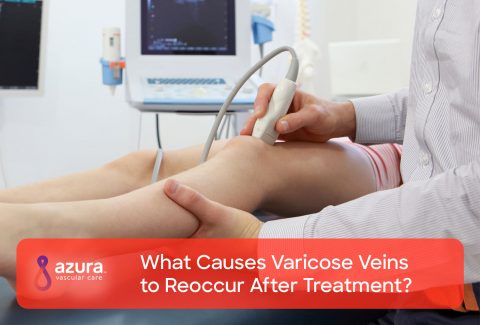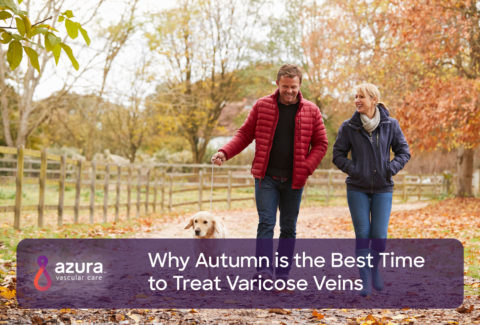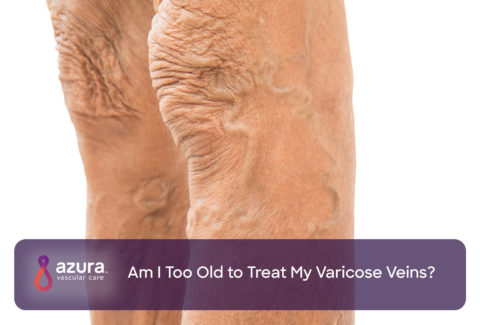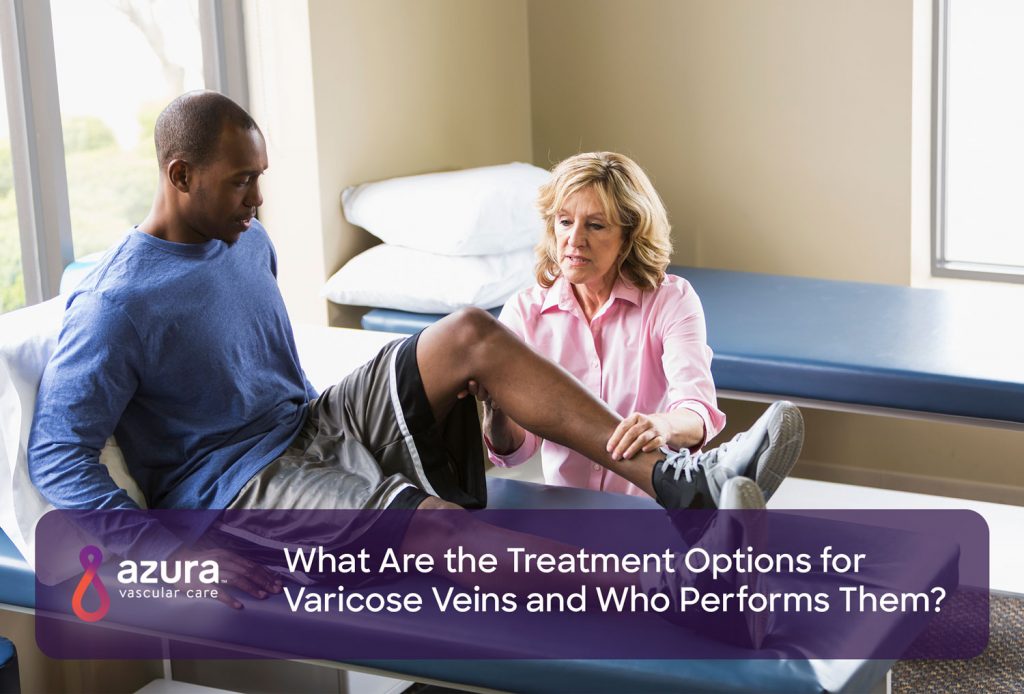
Have you been thinking about getting varicose veins treatments? Do they bother you or are you embarrassed by them? If you hate the way your legs look because of varicose veins, maybe it’s time to do something about it.
Varicose veins are bulging and twisted veins that can usually be seen on the legs.i They occur when the one-way valves in the veins do not work properly. Valves are designed to prevent blood from flowing backwards in the veins so the blood can travel to its destination, the heart, but when these valves fail or are faulty, blood pools. This increased pressure can stretch the vein walls, which may already be weak, and the result is varicose veins.
Do You Need Varicose Vein Treatment?
Are you wondering if varicose vein treatment is right for you? You may want to think about treatment if you have any of these symptoms that can be caused by varicose veins:
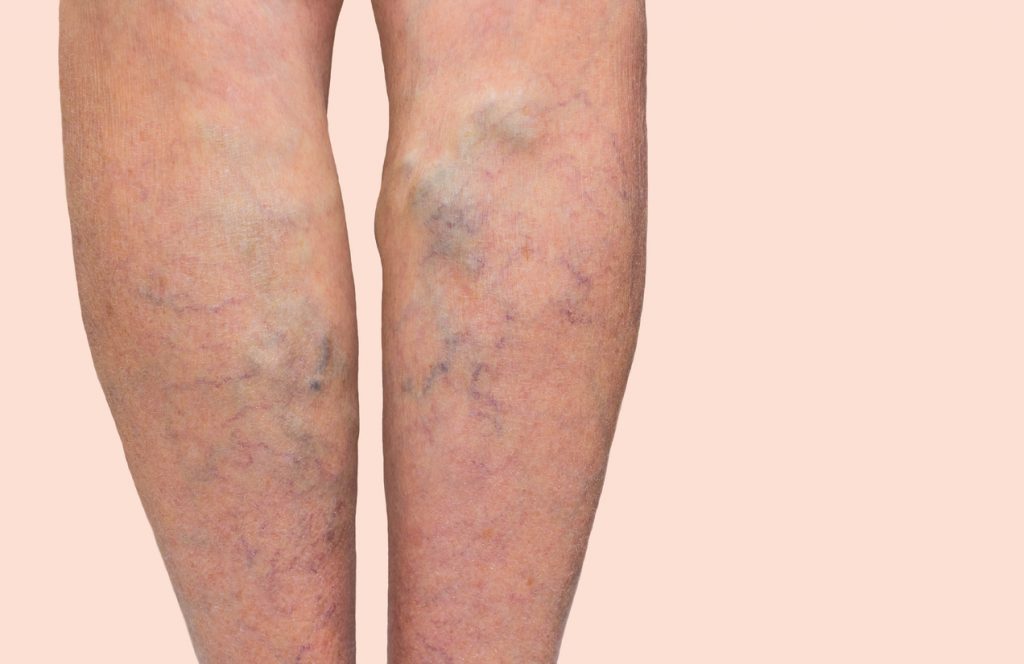
- Leg swelling
- Discomfort, pain or heaviness
- Leg cramps
- A burning sensation
- Itching around the leg or ankles
- Skin changes, such as thickening or change in color
While many people consider varicose vein treatment as being purely cosmetic, there are actually some legitimate medical reasons to seek help if you suffer from varicose veins. You should consider treatment if you’ve had any of the following common varicose veins complications, such as:
- A leg ulcer or chronic sore
- A blood clot, whether thrombophlebitis (a blood clot in a superficial vein) or deep vein thrombosis (a blood clot in a deeper vein that can be life threatening)
- Increased or uncontrollable bleeding from your varicose veins
RELATED: 6 Hidden Dangers if You Don’t Treat Varicose Veins
If you are among the almost 30% of adults with varicose veins, and you are having symptoms from them, you should know your treatment options.ii
Just as you have choices for the type of treatment you get, you also have choices about who performs your treatment. You should understand what kinds of doctors specialize in the various varicose vein treatment procedures because, when you are ready, you’ll want to consult the right doctor to see if a particular treatment is a good choice for you.
Self-Management Treatment Options for Varicose Veins
Did you know that there are several self-management treatment options for varicose veins?

If you suffer from varicose veins, your primary care doctor and vein specialists will all recommend that you:
- Exercise regularly
- Lose extra weight
- Elevate your legs
- Wear compression stockings
- Some doctors may also recommend medications or herbal supplements to help your symptoms.
If after trying these conservative treatments, you still have problems with your varicose veins, you may want to consider additional, sometimes more aggressive treatment.
The Top 2 Treatment Options for Varicose Veins
You do have choices when it comes to how your treatment options: surgery or a minimally invasive varicose vein treatment.
Every treatment has a similar goal: closing off or removing the varicose veins.
OPTION #1: Surgical Treatments
For many years, surgery was the only option for people suffering from varicose veins. Surgery involves an incision to find the varicose veins so they can be tied off (ligated), and the varicose veins that are close to the skin’s surface may be removed (stripped). There is a 50% chance of varicose veins coming back within 5 years after surgery.iii It’s also important to be aware that vein surgery is associated with the risk of pain, bleeding, scarring, infection, and deep vein thrombosis.iii
OPTION #2: Minimally Invasive Treatment Options for Varicose Veins
The invasive nature of surgery, along with the risk of pain and other complications, encouraged the development of less intrusive minimally invasive varicose vein techniques. These procedures can be performed in an outpatient setting, and if any anesthesia is needed at all, may only require an injection of a local anesthetic to numb the skin.
- Sclerotherapy – This involves injecting a sclerosing, or scarring, agent into the vein. While sclerotherapy is very effective for cosmetic treatment of spider veins, a smaller version of varicose veins, you should note that it’s less effective for varicose veins than endovenous ablation.iv
- Endovenous ablation – A catheter, or a thin tube, is placed inside the varicose vein, and heat, generated from a laser fiber or radiofrequency waves, is applied to the inside of the vein, causing it to close off. The success rate for endovenous therapies is between 84 and 94%.iii
- Microphlebectomy – A small nick in the skin is made over the surface of the varicose veins. Using a specialized tool, the vein is removed. This is commonly used along with endovenous ablation.ii
Varicose Vein Treatment Specialists
There are many providers who say they are vein specialists. When considering your treatment options for varicose veins, your best option is to seek out a qualified and well-established provider such as:
- A Vascular Surgeon – These surgeons are specialized in the use of surgery to treat vein and artery diseases.
- An Interventional Radiologist – These doctors are trained in the use of ultrasound and x-rays to treat varicose veins and other vein diseases without surgery.
You should have the safest and most effective treatment possible for your varicose veins. Now that you know your treatment options and the types of doctors who perform these procedures, set up a consultation with the specialist you think will provide you with the most knowledge and understanding of how to treat your varicose veins effectively.
Sources
iMayo Clinic. Varicose Veins Overview. http://www.mayoclinic.org/diseases-conditions/varicose-veins/home/ovc-20178078 (updated 1/22/2016, accessed 11/30/2016)
iiLin, F., Zhang, S., Sun, Y., Ren, S., Liu, P., The Management of Varicose Veins. Int Surg, 2015. 100: p. 185-189. https://www.ncbi.nlm.nih.gov/pmc/articles/PMC4301287/
iiiPiazza, G., Varicose Veins. Circulation, 2014. 130: p. 582-587. http://circ.ahajournals.org/content/130/7/582.long
ivSpinedi, L., Uthoff, H., Partovi, S., Staub, D. Varicosities of the lower extremity, new approaches: cosmetic or therapeutic needs? Swiss Med Wkly, 2016. 146:214360 http://www.smw.ch/scripts/stream_pdf.php?doi=smw-2016-14360
